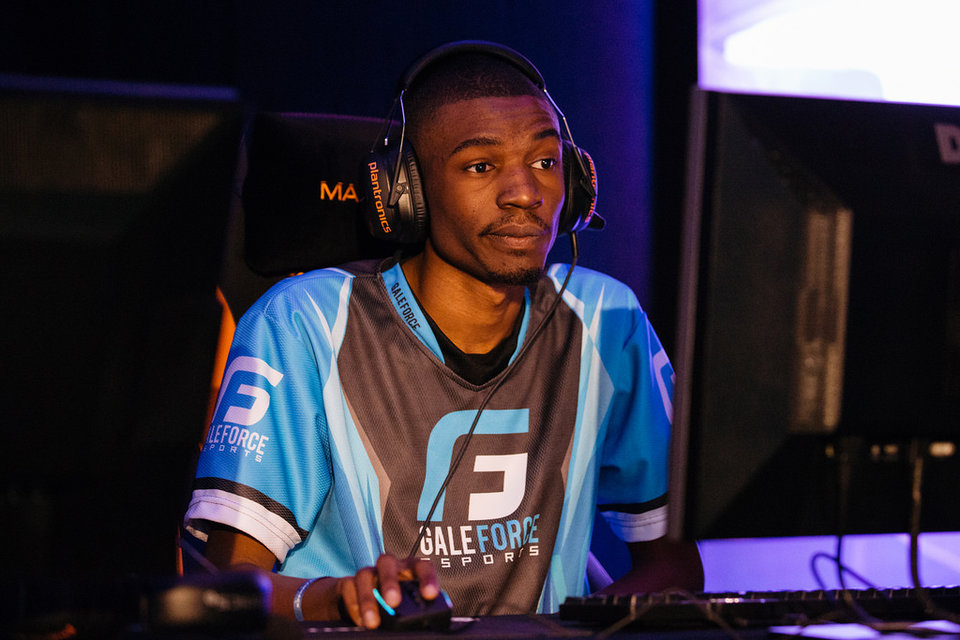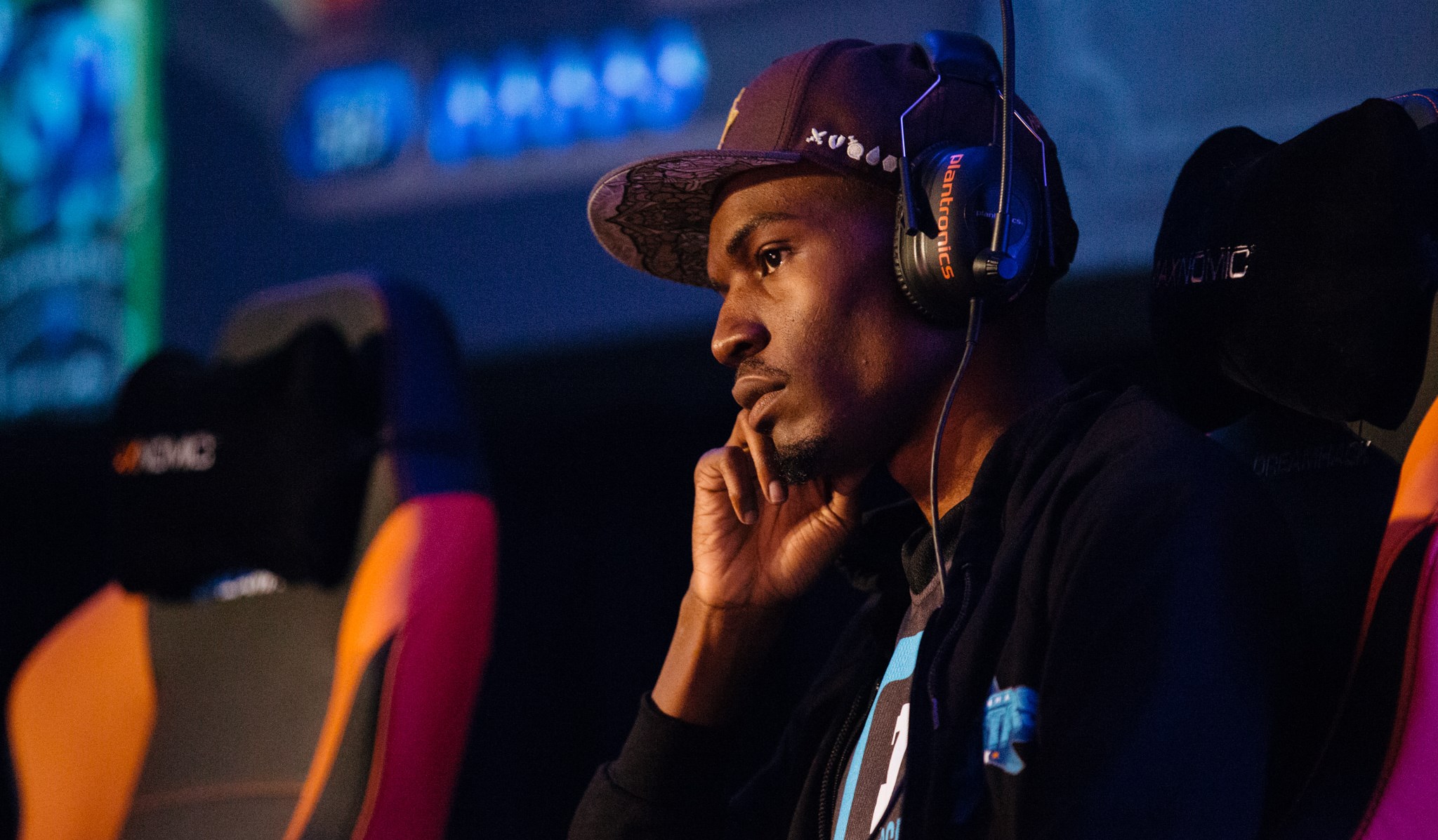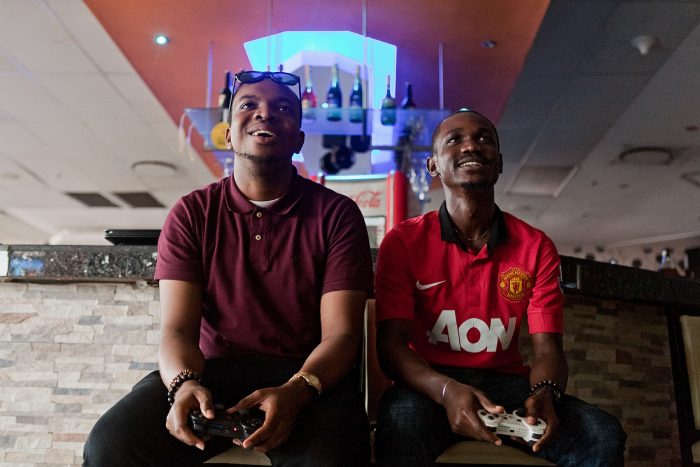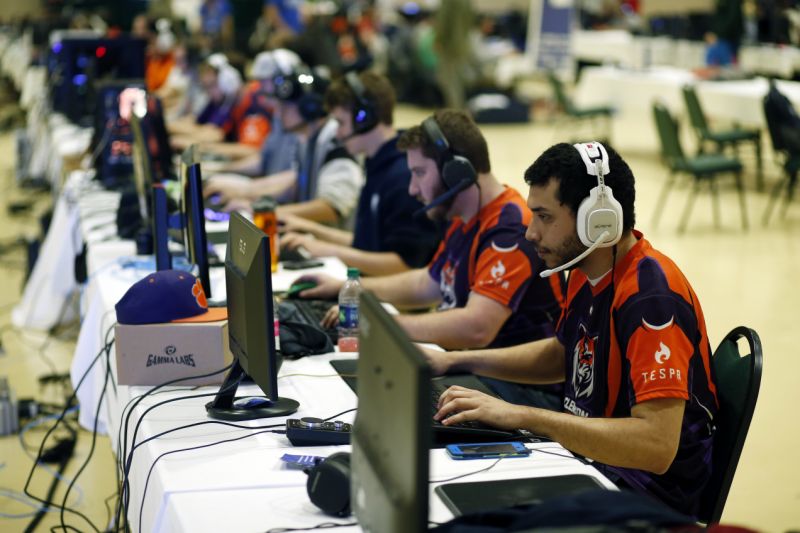

Before we highlight some of the people who are succeeding in the fast growing Esports category, let’s first look at the inherent racial problems that pose an extreme barrier for our people to succeed in it.

The professionalization of sports changed the math for millions of young African-Americans, both male and female, providing careers, scholarships and a pathway to fame and further fortune.
Now esports is quickly rising to become the next iteration of big-stakes competitive play. Boasting a digital-first, broadly global audience, the esports marketplace raked in $696 million in 2017, with projected revenues to exceed $1 billion by 2020.
But within the esports juggernaut, there is a pronounced and growing racial gap in the player pools. African-American representation on the major teams and in the highest-profile events is abysmal. There are high-profile players of color, such as Zaqueri “Aphromoo” Black and Dominique “SonicFox” McLean, but why are there so few other black players making it to the top of the various leagues?
Racism

Imagine that your kid is competing in a professional video game tournament. You open the online streaming service Twitch to watch.
It’s not long before you notice the flood of racist comments quickly filling stream’s chat window. You have to make the video full screen just to avoid the hateful things being said about him.
That’s exactly what happened to Terrence “TerrenceM” Miller’s parents during the DreamHack Austin “Hearthstone” tournament in early May.
The worst part? Miller says these kinds of experiences are “nothing new.”
Anyone who’s played games online knows that it doesn’t take long for trash-talking to start flying — but in the context of a high-stakes professional gaming tournament, commenters seem to take advantage of the anonymity of an online comments section to a disgusting degree.
In a post on GosuGamers, moderator Carling “Toastthebadger” Filewich wrote that this tournament in particular failed to adequately fight the racism that plagues the world of gaming. She says many moderators were reversing the bans on racist commenters, even sometimes “joining in” and contributing racist comments themselves.
Cultural Obstacles

Another answer on why so few African Americans in the games may lie in the foundations of esports — the actual video games many of us played growing up. PC games, such as Dota,League of Legends, StarCraft and Counter-Strike, grew into their own ecosystems. Over time, spectators gathered, communities grew and funding started to flow. But for console games such as Call of Duty, Super Smash Bros., Halo and Street Fighter, the communities grew but the same funding and opportunities didn’t materialize. As esports matures, one thing has become crystal clear: The PC/console divide has inadvertently become a racial divide, with white and Asian players featured most heavily on the PC side and African-American and Latino players on the other.
This divide isn’t sacrosanct — clearly there are black and Latino players who have found their home in PC-based esports and white and Asian players who prefer joysticks to mouse clicks. But the prevalence of the divide should give any fan of esports pause. As we create this new world, what exactly are we building? With the levels of investment pouring into esports and the rise of an entirely new field of play, it’s important to ask deeper questions about these dynamics before they codify. Especially if those dynamics have deeper racial implications.
Preferences around hardware is one potential cause since it influences the ways a player chooses to pursue a career.
Betsy DiSalvo, a researcher at Georgia Tech, began trying to identify these trends with her first-year computer science students after noticing low African-American participation. Her research, which eventually became the Glitch Game Testers program in partnership with Morehouse College, revealed some fascinating dynamics about African-American men and preferred modes of play:
A study of play practices suggests young African-American men play in specific ways that differ from the groups who do tend to leverage gaming interests in to computing interests [3].
African-American men tend to:
- Use fewer cheats and mods; value good sportsmanship
- Play on console systems
- Place a high value on competition
- Play in multigenerational family settings
DiSalvo’s research is trailblazing in many ways and can be applied to a variety of findings in computer science programs. And while her initial findings do have interesting implications for competitive gaming, they don’t apply specifically to esports, which rose to prominence after her research began.
Financial Barriers

There’s also the financial aspect to the PC/console divide that contributes to a growing disparity in esports: the sheer dollar amounts involved. For PC-dominant games such as Dota and League of Legends, the prize pools involved reach into the millions. Part of the money is normally fronted by the publisher to seed initial interest. But much of the pool can also come from competitor or fan contributions. And while there is a major pot for PC-based prize pools, in the console-based world the top prize pools barely reach the hundreds of thousands.
- Dota 2 International = $24,787,916
- League of Legends = $4,946,970
- Capcom Cup = $380,000
- Street Fighter V = $100,000
While the historic take in the Dota 2 International prize pool came from community support, the publisher threw in $1.6 million to start. Console publishers have historically been more reluctant to invest big in prize pools or to even support the grass-roots communities around their games.
All of these individual decisions by publishers are currently examined in the context of just one game. But if we broaden the lens to the full landscape for esports, the scope of the problem is clear. Currently, if a player loves Dota, there’s a sponsored path toward a career in the industry and the potential to net up to $10 million in the current prize pool. It can become a lucrative career if a player can reach the highest levels. But if a player loves and puts his or her hours in on Street Fighter, at best, the highest individual take would be $50,000.
These dramatically different outcomes based on the games you love sets up a pernicious cycle in esports — the players who were drawn to more lucrative games have the chance to continue to compete and to live off their earnings. Players who love games that do not find publisher support and audience support simply will not have the same opportunities for advancement in esports, regardless of how good they are.
There is an argument to be made that esports players who want to go pro should go where the money and support are. While that is antithetical to the love of the game that has taken esports this far, the changing landscape may require examining opportunities within the game.
But even if one were to push young black players into the more lucrative PC-side gaming, would they be welcome?
It All Comes Back To Racism

Every few months, there’s been a new discussion of racism in the esports community. There is the long-standing issue of racial slurs as a part of overall toxicity in online gaming communities, which has already claimed the careers of a few pros. There’s the tongue-in-cheek-but-not-really adoption of the “PC Master Race” framework, which becomes more disturbing when you compare the broader demographics of PC gamers and the so-called “console peasants.” There are the dust-ups over the use of Pepe imagery by professional players and the racist applications of the TriHard emote.
And then, as we have already noted, there’s what happened to Terrence “TerrenceM” Miller in 2016 while he was playing Hearthstone.
After the incident, Miller said:
“I think it was huge for my career,” he said. “As s—-ty as it is to say, something that bad was really good for me actually. It got me tons of exposure. I was just joking with some friends. One was like, ‘Oh, racism was really good for you.’ I was like, ‘I mean, kind of?’ I don’t really know how to respond to that.” […]
At the same time, though, it means that the spotlight isn’t really on Miller’s skills. He’s not very happy about that. “One joke I also made was, one friend was like, ‘Oh, you haven’t been playing as well [since Dreamhack],’ and I said, ‘Oh, they don’t really care how I play anyway. It’s just about race.’ It was surreal to think about, but there’s some truth to that. People didn’t care as much about my play as that I was someone different or just a person of color in a space where there wasn’t as many people of color.”
This story could have been seen as triumph — after all, Miller played well despite the abuse and prompted both Twitch and Blizzard to address the controversy.
But the story has an unfortunate postscript: After rising to prominence for the incident and finishing second, Miller is currently unsigned and has a pinned tweet saying he is looking for a team to represent in the 2018 Hearthstone season.
Back when esports was mostly a network of grass-roots scenes, we could convincingly argue that each scene was organic, and the players being pushed through the scene were simply the best currently playing.
But as investor money starts flooding the zone and esports begins to adopt a variety of professional structures such as players’ associations, it is important to ask if esports is an equal playing field for all.
